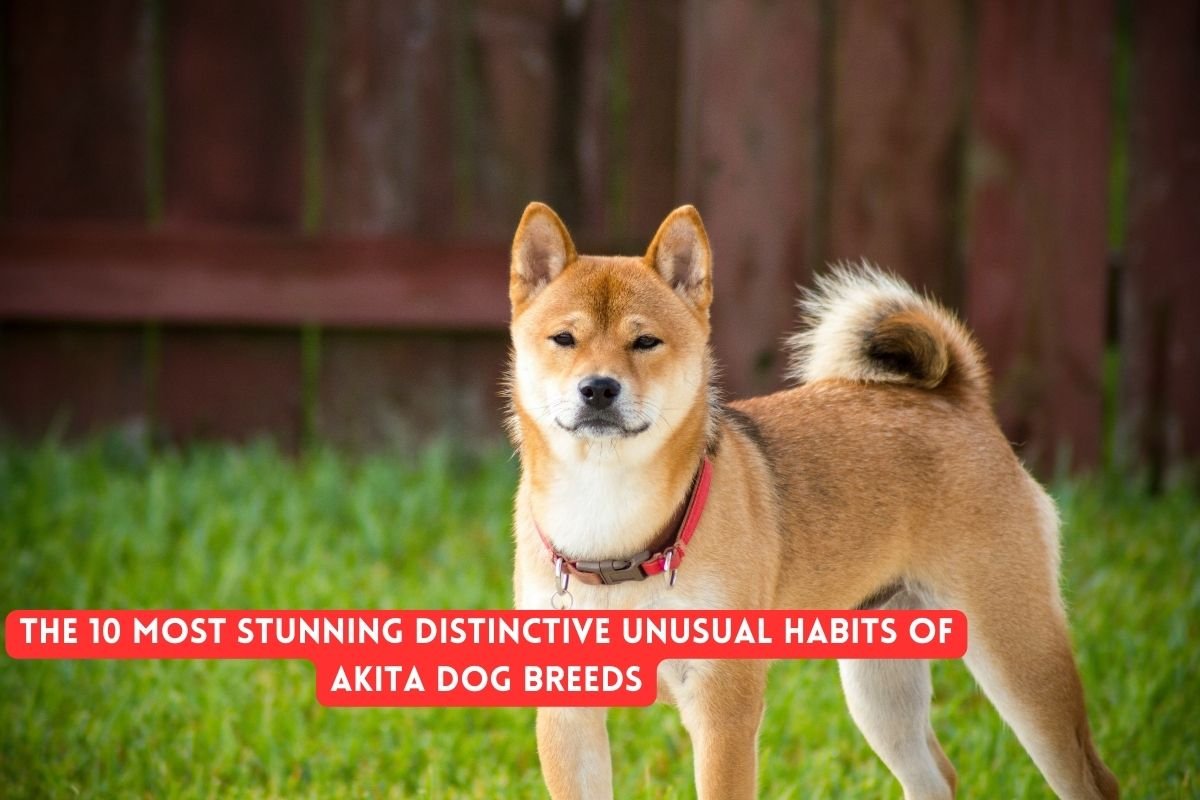Akita dogs, originally hailing from Japan, are known for their loyalty, intelligence, and striking appearance. These majestic animals possess a variety of unique habits and behaviors that make them stand out among dog breeds. Here are the ten most stunning, distinctive, and unusual habits of Akita dog breeds.
Silent Watchers
Akitas are known for their quiet nature. Unlike many other breeds, they do not bark excessively. This characteristic makes them excellent watchdogs, as they observe their surroundings in silence and only vocalize when necessary.
Cat-like Grooming
One of the most distinctive habits of Akitas is their meticulous grooming behavior. Much like cats, they frequently lick their fur to keep it clean. This self-cleaning habit helps maintain their pristine appearance and reduces the need for frequent baths.
Mouthy Play
Akitas often use their mouths to explore and interact with their environment. While they are not aggressive, they tend to grab objects, toys, and sometimes even their owners’ hands gently with their mouths during playtime.
Strong-Willed Independence
Akitas have a reputation for being fiercely independent. This breed often exhibits a strong will and may not always follow commands immediately. Their independent nature requires a firm yet loving hand in training to ensure they remain well-behaved.
Loyalty to a Fault
The loyalty of an Akita is unparalleled. Once they form a bond with their family, they are incredibly protective and devoted. This loyalty can sometimes lead to aloofness with strangers, making early socialization crucial.
Expressive Vocalizations
Although they are generally quiet, Akitas can be quite vocal in other ways. They are known for their unique vocalizations, including grunts, moans, and “talking” sounds, which they use to communicate with their owners.
Reserved Demeanor
Akitas often display a calm and reserved demeanor, especially around unfamiliar people. This breed prefers to observe and assess situations before engaging, which can be mistaken for aloofness or disinterest.
Dedicated Family Companions
Despite their independent streak, Akitas are incredibly affectionate with their families. They enjoy spending time with their loved ones and are known to follow family members around the house to stay close to them.
High Prey Drive
Akitas possess a strong prey drive, a remnant of their hunting dog heritage. This instinct can lead them to chase small animals, so it’s important for owners to keep them on a leash or within a secure, fenced area when outside.
Aloof But Affectionate
While Akitas may seem aloof to strangers, they are affectionate and loving towards their family. They often show their affection through subtle actions, such as leaning against their owners or resting their heads on laps.
Conclusion
The Akita dog breed is a fascinating combination of independence, loyalty, and unique behaviors. Their quiet yet expressive nature, coupled with their deep devotion to their families, makes them a truly distinctive breed. Understanding these habits can help potential owners appreciate the special qualities that Akitas bring into their lives.
FAQs
Are Akitas good with children?
Yes, Akitas can be good with children if they are properly socialized and trained from a young age. However, due to their large size and strong-willed nature, supervision is recommended.
How often should I groom my Akita?
Regular grooming is important for Akitas due to their thick double coat. Brushing them at least once a week helps manage shedding and keeps their coat healthy.
Do Akitas get along with other pets?
Akitas can be wary of other animals, especially smaller ones. Early socialization and training are crucial to help them coexist peacefully with other pets.
Are Akitas suitable for apartment living?
While Akitas can adapt to apartment living, they require regular exercise and mental stimulation to stay healthy and happy. Access to outdoor spaces is beneficial.
What is the life expectancy of an Akita?
Akitas typically have a life expectancy of 10 to 15 years, provided they are well-cared for with a healthy diet and regular veterinary check-ups.
